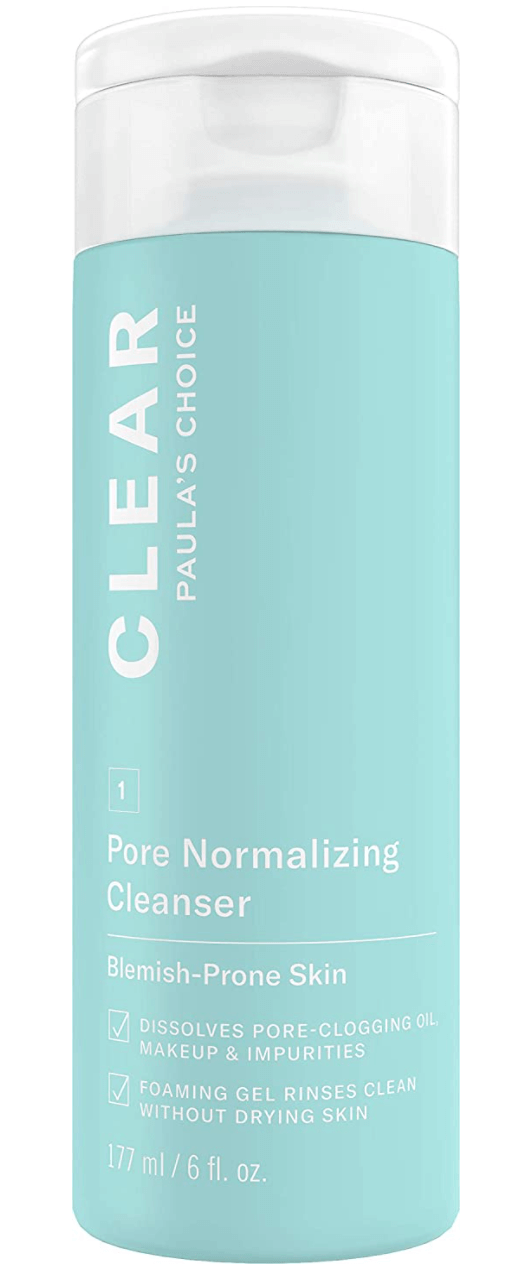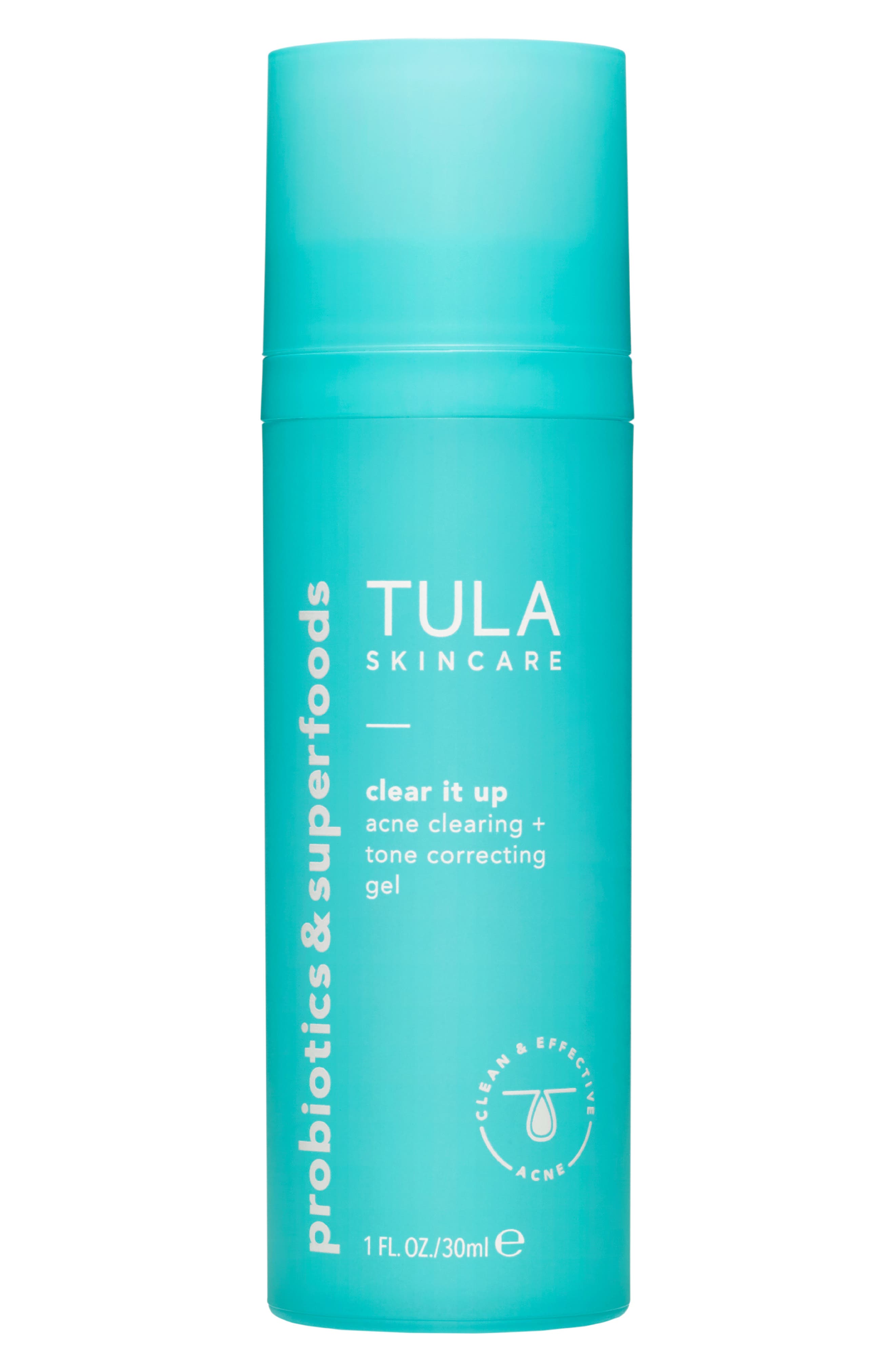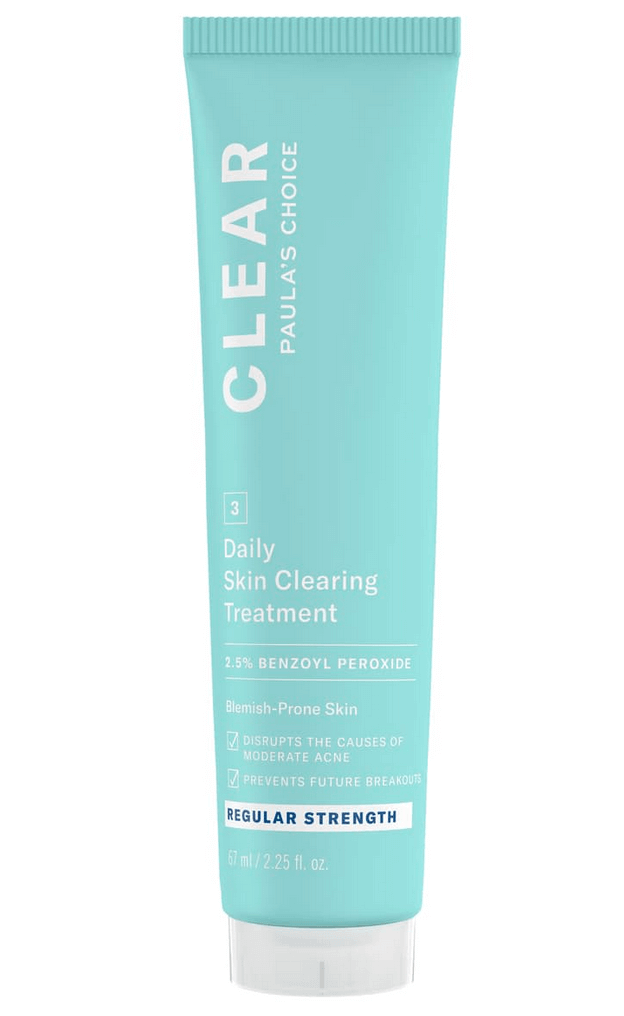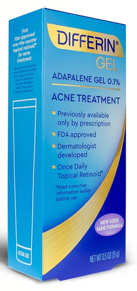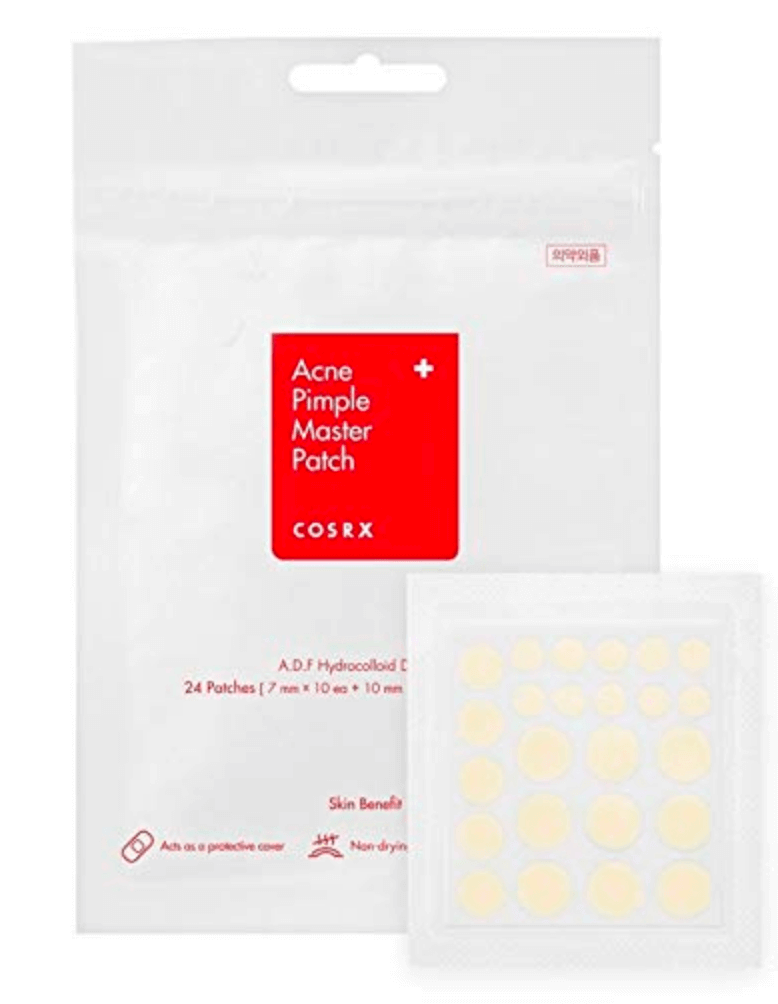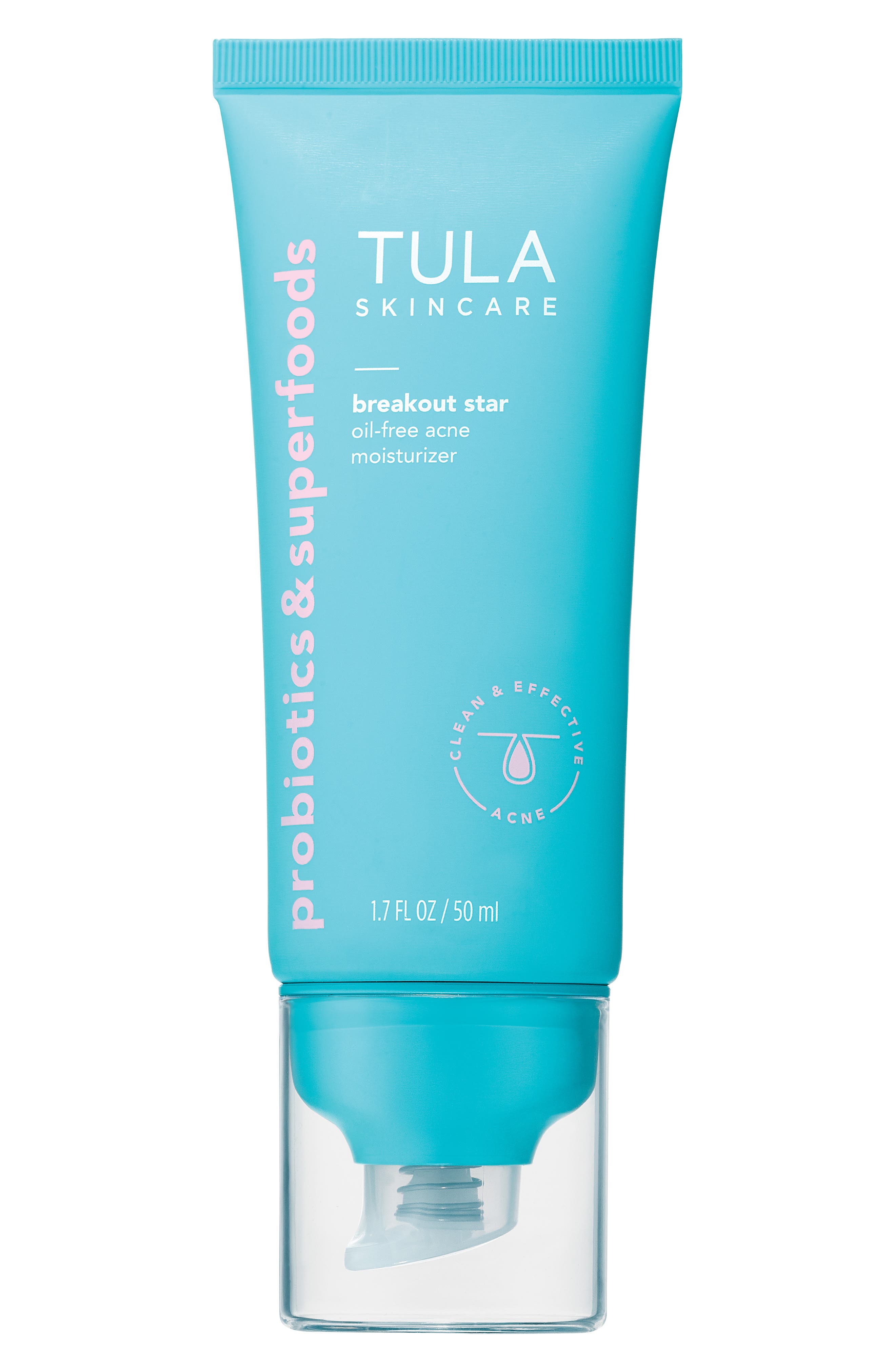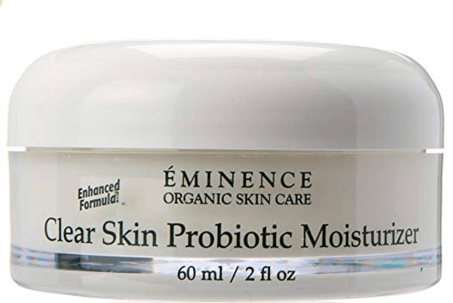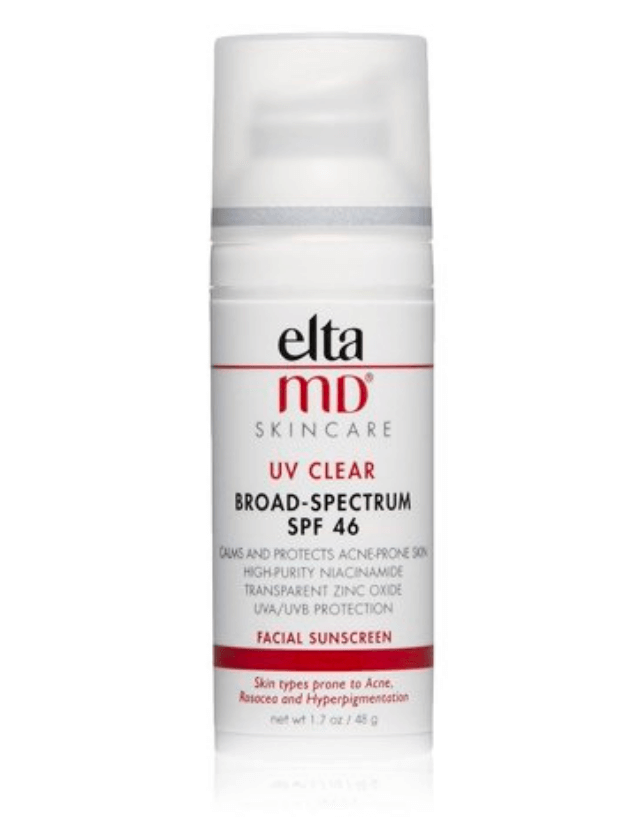Acne & Blemishes:
Causes, Treatments, & Top Ingredients
GHS ONE-LINER: Whiteheads, blackheads, red bumps, or cysts
Let’s be honest, we are all thinking the same thing... acne sucks. Acne is one of the most common and anxiety-provoking skin conditions out there. The most common area for acne to hang out is in your T-zone, which is made up of the oiliest spots on your face (think nose, chin, and forehead), but it can also show up on your neck, chest, back, shoulders, and upper arms. And for those celebrating because you are past teen years - sit down, because unfortunately acne can occur at any age, so you’re never quite off the hook. But as much as a zit can feel life-threatening (especially when it pops up the night before a date, a job interview, or that night out with friends), the good news is that acne never killed anyone. And it’s treatable.
What Causes Acne?
Keep in mind: the causes of acne have not shown to differ biologically between those with light skin versus dark skin - however, those with darker skin often experience postinflammatory hyperpigmentation in addition to acne breakouts.
Bacteria from Pores
This type of acne happens when bacteria breaks out of clogged pores and leaks into nearby tissues. Your body sends white blood cells to attack the bacteria, which results in swelling, redness, and inflammatory acne (papules, pustules, nodules, or even cysts).

Hormones
This type of acne is a result of changing hormones or a hormonal imbalance. Testosterone converted to dihydrotestosterone (DHT - an endogenous androgen) along with an increase of insulin and IGF-1 during hormonal changes can cause your body to produce more oil and acne-causing bacteria. This often leads to inflammatory acne (papules, pustules, nodules, or cysts). During puberty and your teen years, hormonal acne tends to congregate in the T-Zone (nose, chin, and forehead). Later in life, hormonal changes like menstruation, birth control, pregnancy, and menopause can also cause hormonal acne around the chin and jawline.

Oiliness
This type of acne is caused by too much oil production (a.k.a. overly active sebaceous glands). When bacteria and dead skin cells in your pores get stuck together, your pores swell, leading to comedonal acne (whiteheads or blackheads).

Genetics
Sometimes, you use all the right products and treatments and you still have acne. Which sucks. Unfortunately, genetics are unpredictable and can cause both comedonal and inflammatory acne. But it’s because no matter what you put on your skin, sometimes your genes take the wheel. Genetics influence a lot, including:
- Oil levels
- Pore size
- Cell turnover rate (for example: retention hyperkeratosis is the hereditary tendency to have a low cell turnover rate, which means you don’t shed dead skin cells and your pores easily clog)
- Sensitivity to hormones
- The production of anti-inflammatory chemicals in your skin

Acnegenic Reactions
This type of acne can develop as quickly as overnight, caused by inflammation in your pores from a cosmetic product, treatment (e.g. waxing, extraction), or oral supplement. The inflammation overstimulates the blood flow, resulting in inflammatory acne (papules or pustules). The good news about acnegenic reactions is that your skin can clear up quite quickly once you adjust your skincare routine.

Comedogenic Reactions
This type of acne develops slowly over a few weeks or months, caused by a cosmetic product or treatment (e.g. waxing, extraction) that clogs your pores, leading to comedonal acne (whiteheads or blackheads), and sometimes inflammatory acne such as papules.

Food Allergies
This type of acne is triggered by eating a food you’re allergic to, causing your immune system to fight the food as an invading organism, leading to inflammation which causes inflammatory acne (pustules, nodules, or cysts).

6 Types of Acne Vulgaris
Whiteheads
Comedonal AcneWhiteheads are small whitish bumps with no openings (closed comedones) that live below the surface of your skin
Caused by: comedogenic reactions, genetics, or oiliness
Blackheads
Comedonal AcneBlackheads are small dark bumps, usually black or brown, on the surface of your skin that have an opening at the top (open comedones)
Caused by: comedogenic reactions, genetics, or oiliness
Papules
Inflammatory AcnePapules are red or pink closed bumps with no pus inside that are raised above your skin - sometimes only noticeable by touch
Caused by: acnegenic reactions, genetics, hormones, or bacteria escaping clogged pores
Pustules
Inflammatory AcnePustules are bumps that are raised above your skin with white or yellow pus on top, and a red bottom due to inflammation
Caused by: acnegenic reactions, genetics, hormones, bacteria escaping clogged pores, or food allergies
Nodules
Inflammatory AcneNodules are large, painful bumps that are inflamed, pus-filled, tender, and develop deep in your skin
Caused by: acnegenic reactions, genetics, hormones, bacteria escaping clogged pores, or food allergies
Cysts
Inflammatory AcneCysts are painful, infected pus-filled bumps that develop deep in your skin - these can cause scarring
Caused by: hormones, bacteria escaping clogged pores, or food allergies
How to Treat Acne & Blemishes

Use an Oil Control Cleanser
Use a gentle water-based or gel cleanser twice a day to remove dirt and breakdown the oils within your skin. Avoid harsh cleansers that strip the natural oils from your skin. Those harsh cleansers will dry out your skin, making it more prone to premature aging and breakouts. After cleansing, pat your skin dry with a washcloth - do not roughly rub the washcloth on your face to dry.

Exfoliate a Few Times Weekly
After cleansing, use a chemical exfoliant (i.e. salicylic acid) in the form of a peel, mask, or serum a few times a week in the evening to deeply clean your pores by removing excess oil and preventing dead skin cell build-up by shedding dead skin cells. For those battling aging + acne or those with sensitive skin, instead of using a chemical exfoliant like salicylic acid, apply a serum or cream in the evening that contains topical retinoids such as retin-A or differin (adapalene). Lastly, do not scrub your acne - harsh exfoliation removes the oil in your skin, causing your skin to produce extra oil which could lead to more breakouts.

Use a Non-Alcoholic Toner
Post cleansing and/or exfoliating, use a low pH toner that does not contain alcohol (isopropyl). Some toners may contain salicylic acid which will help remove dead skin cells and temporarily tighten your pores. Rose water facial mists or toners with witch hazel can also help you keep your skin moisturized and pH balanced without triggering an acne outburst.

Invest in Topical Acne Agents
Following cleansing, exfoliating, and toning, apply a cream or gel that contains one or more topical ingredients used to treat acne.

Try a Spot Treatment Mask
Dry out your pimples with a spot treatment mask. In the evening, apply a spot treatment mask to your pimples (not your whole face - you only want to dry out the pimple, not your skin!). This spot treatment works quickly and in some cases can completely dry up a pimple overnight. However, depending on the mask, it usually takes a few days of continuously applying the mask in the evening before a pimple completely dries out.

Don't Forget to Hydrate & Moisturize!
Contrary to popular belief, oil does not hydrate your skin, and having oily skin does not mean your skin is moisturized. Acne fighting ingredients such as benzoyl peroxide and salicylic acid can have a drying effect on the skin, so twice a day be sure to apply an oil-free, non-comedogenic moisturizer that contains humectants (i.e. hyaluronic acid or glycerin) in order to hydrate your skin and protect your skin's barrier. Drying out your skin will not make your acne go away - it will only damage your skin overtime. Hydrating and moisturizing your skin is a necessity when it comes to treating acne. Look for a moisturizer that is specifically formulated for acne-prone skin.

Apply Sunscreen Daily
After moisturizing, always apply sunscreen with an SPF of 15 or higher daily on your face (yes, even during the winter, and even when it’s cloudy out). Benzoyl peroxide and other acne fighting ingredients make your skin extra sensitive to UV rays. Sunscreen that is oil-free or has a water or light liquid base will not cause your skin to feel greasy and be less likely to make you breakout.

Avoid Products with a Thick, Creamy Consistency
Despite products claiming to be "non-comedogenic" or "non-acnegenic", currently there are no federal regulations or standard rules from the Food and Drug Administration (FDA) about the use of "non-comedogenic" or "non-acnegenic" for skin care products, so you cannot always trust products that make these claims. As a general rule, the thicker the texture of the product is, the more likely it is to clog your pores. When treating acne, look for products that are liquid, gel, or have an extremely light serum texture, or a thin, water-based lotion consistency. Generally, products with thinner textures are less likely to clog your pores or cause breakouts.
Check out the GHS 10 Best Acne Fighting Products.
Our curated list is paraben-free, sulfate-free, and phthalate-free.
Top 6 Ingredients for Fighting Acne & Blemishes
✓ Benzoyl Peroxide
- Kills acne bacteria
- Removes dead skin cells
- Reduces inflammation
- Pair with salicylic acid
Skin type: combo, normal, oily
Category: antiseptic, keratolytic
Treats: whiteheads, blackheads, papules, pustules
✓ Salicylic Acid (BHA)
- Cleans oil from pores
- Removes dead skin cells
- Soothes inflammation
- Pair with benzoyl peroxide
Skin type: combo, normal, oily
Category: BHA
Treats: whiteheads, blackheads
✓ Adapalene (Differin)
- Speeds up cell turnover
- Removes dead skin cells
- Anti-inflammatory
- Great for acne + anti-aging
Category: retinoid
Treats: whiteheads, blackheads
✓ Azelaic Acid
- Fights acne bacteria
- Removes dead skin cells
- Lightens acne scars
- Anti-inflammatory
Category: antiseptic, keratolytic
Treats: papules, pustules, nodules, cysts
✓ Retin-A (Tretinoin)
- Speeds up cell turnover
- Removes dead skin cells
- Fades acne dark spots
- Great for acne + anti-aging
Category: retinoid
Treats: whiteheads, blackheads
✓ Sulfur
- Reduces oil gland activity
- Removes dead skin cells
- Prevents acne bacteria growth
- Use as spot treatment only
Category: antiseptic, keratolytic
Treats: whiteheads, blackheads
FAQs about Acne
Q. What causes acne?
- Bacteria escaping clogged pores
- Hormones
- Oiliness
- Genetics
- Acnegenic reactions
- Comedogenic reactions
- Food allergies or sensitivities

Q. How do you get rid of acne?
- Use products that are non-comedogenic
- Use an oil control cleanser twice a day
- Use a chemical exfoliant a few times a week
- Use a non-alcoholic toner
- Invest in an antibacterial serum that contains benzoyl peroxide or azelaic acid
- Try a spot treatment mask in the evening
- Don't forget to hydrate and moisturize

Q. Should I pop my pimples?
No, and no. Popping a pimple will NOT make it go away quicker—instead, it pushes buildup deeper into your skin, which is bad news. This can worsen your acne and cause more redness and inflammation, putting your skin at risk for scars and dark spots that will stick around even after the acne disappears. So no, don’t pop them. Leave extractions to professionals.

Q. Will scrubbing my blackheads make them go away?
No, it’ll actually do the opposite. Harsh exfoliation removes essential oil from your skin, which dries it out and causes irritation—and that could lead to more breakouts.

Q. Is the black part of a blackhead dirt?
No. When dead skin cells and oil in your pores rise to the surface, they get exposed to the air, which makes them become oxidized and turn a dark color (hence the name - 'blackheads').

Q. Are the tiny clogged pores on my nose the same as blackheads?
No. Tiny clogged pores on your nose are much smaller than blackheads. They’re called sebaceous filaments, which are mostly hardened oil and some dead cell buildup.

Q. Are dark spots from acne the same as acne scars?
No. Dark spots from acne occur as a result of post inflammatory hyperpigmentation (skin discoloration that happens post breakout) and they fade overtime, not actually damaging your skin. The dark spots are flat and can vary in color (pink to red, purple, brown or black). Acne scars occur when your skin has been damaged from the acne (loss or overgrowth of tissue), resulting in indented (depressed), pitted, or raised scars. Acne scars will need professional scar treatment procedures.

Q. Does greasy food or chocolate cause acne?
No (thank goodness). However, keep an eye out when you’re cooking. If oil splatters and sticks to your skin, your pores can clog and break out.

Q. Can skin care products cause or worsen acne?
Yes, specifically comedogenic products, which are meant for people with dry skin and low oil production. If you have oily or acne-prone skin, look for skincare and makeup products that are labeled non-comedogenic.

Q. What is the best makeup for acne?
The best makeup for acne consists of products that are formulated as oil-free or non-comedogenic. Stay away from makeup that contains silicones and mica because those ingredients can block pores and cause irritation on acne-prone skin. Always buy liquid makeup that comes in a pump. If you are using liquid makeup that comes in a cushion or bottle, the bacteria and oils on your hands will constantly be going back in the bottle, leading to more breakouts.

Q. Does stress cause acne?
No, but it can worsen it by changing your hormonal levels. Specifically, stress makes your body produce extra adrenaline, causing the sebaceous glands to be stimulated, resulting in more oil flow, which can lead to breakouts.

Q. Can pollution, humidity, or dry weather cause acne?
No, but they can make it worse. Pollution carries toxins that can slow your cell turnover rate, leading to a buildup of dead skin cells. Humidity makes you sweat, which can lead to clogged pores with dead skin cells. And dry weather can cause your skin to overcompensate by producing extra oil.

Q. Does a harmful diet, poor hygiene, or an uncontrolled sex drive cause acne?
No. Acne is caused by excess oil, dead skin cells, and bacteria build up.

Q. If I have oily skin, will drying out my skin help clear my acne?
No, definitely not. Drying out your skin will actually make it worse, because your skin will produce more oil to counteract the dryness, leading to more buildup in your pores.

Q. Will sun exposure clear my acne?
No. Exposing your face to a large amount of heat from the sun can actually cause your acne to flare up more. In addition, sun exposure darkens pigmentation, so those acne scars you’ve been trying to get rid of will only get worse if you let them soak up in the sun without sunscreen.

Q. I’ve never had acne problems until now. Why am I breaking out in my 20s?
Acne in your 20s mostly has to do with hormone fluctuations from more intricate hormonal processes, birth control, stress playing a stronger factor for you in your 20s, or pregnancy.

Q. Which facial is best for acne?
Facials are only effective for those with mild to moderate non-inflammatory acne (whiteheads and blackheads). For those with moderate to severe inflammatory acne (papules, pustules, nodules, and cysts) facials will actually irritate your skin, causing your inflammatory acne to become even more inflamed.

Q. What happens during an acne treatment facial?
An acne treatment facial consists of:
- Cleansing to remove any makeup and impurities
- Steaming to soften up your skin and open your pores
- Exfoliation to remove dead skin cells
- Skin Sedation Mask to calm your skin post-exfoliation and prep it for extractions
- Extractions using blemish extractor tools (do not try this at home!)
- Antiseptic to clear any bacteria and reduce the chances of a post-facial breakout
- Targeted treatment using a serum and/or a mask
- Hydration using a cream/moisturizer and sunscreen (depending on time of day)

Q. What are extractions?
An extraction is the process of clearing a clogged or compacted follicle by manual or mechanical means. The esthetician applies pressure around the pore to remove the contents clogging the pore. This may be done using the fingers (wrapped in gauze or cotton) or a special tool called a comedone extractor, which is designed for this purpose.

Q. How does medical treatment for acne differ from topical treatment?
Medical treatments for acne are much stronger than topical treatments, and they often have more side effects. That’s why they require a prescription from your dermatologist.

Q. When should I go to a dermatologist?
Whenever you want a professional opinion! Everyone’s skin is different, so it’s never a bad idea to check in with an expert. Get connected with a dermatologist today.

Related Pages
10 Best Acne Fighting Products
10 Best Cruelty-Free Acne Fighting Products
Benzoyl Peroxide Products for Acne
Salicylic Acid Products for Acne
Azelaic Acid Products for Acne
Benzoyl Peroxide Skin Care Benefits: All You Need to Know
Salicylic Acid Skin Care Benefits: All You Need to Know
Adapalene (Differin) Skin Care Benefits: All You Need to Know
Azelaic Acid Skin Care Benefits: All You Need to Know
Want More GHS Tips?
It’ll be the best thing to ever slide into your DM's.
